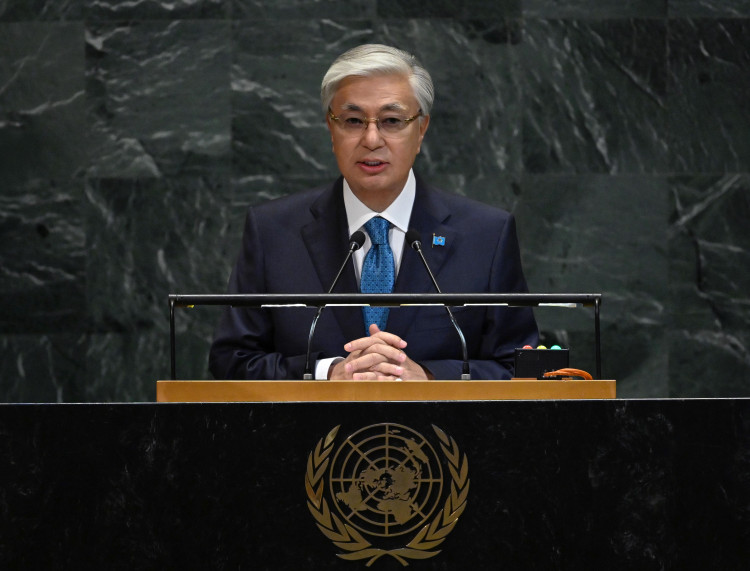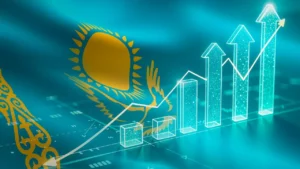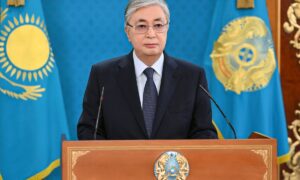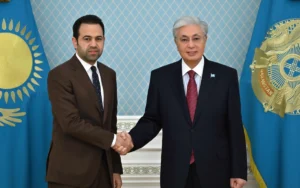President Tokayev Urges UN Reform, Peace, and Global Cooperation at UNGA80

New York, The Gulf Observer: President of Kazakhstan Kassym-Jomart Tokayev delivered a wide-ranging address at the General Debate of the 80th session of the United Nations General Assembly (UNGA80) in New York, urging comprehensive reform of the UN system, stronger multilateral cooperation, and urgent steps to advance peace, sustainability, and digital equity.
Reflecting on the UN’s eight-decade legacy, Tokayev acknowledged its central role in addressing global challenges but warned of an ongoing crisis of trust in multilateral institutions. “We must also face the truth: the world around us has changed profoundly – and, unfortunately, not for the better,” he said, calling for the UN to become more “adjustable to the realities of today’s unpredictable world.”
Security Council reform
Tokayev stressed that reforming the UN Security Council is a “strategic necessity,” urging broader representation of Asia, Africa, and Latin America on a rotational basis, alongside an enhanced role for responsible Middle Powers to serve as bridges during times of division. He proposed the creation of a dedicated team to draft reform proposals, while emphasizing adherence to the founding principles of the UN Charter, including sovereignty, territorial integrity, and peaceful dispute resolution.
Addressing global conflicts
The Kazakh leader expressed concern over the ongoing crisis in Ukraine and the humanitarian catastrophe in Gaza, calling for restraint, accountability, and compliance with international humanitarian law. He reiterated Kazakhstan’s support for a two-state solution and welcomed progress in the South Caucasus, citing the normalization of relations between Azerbaijan and Armenia.
Restoring trust and stability
Tokayev cautioned against the collapse of arms control treaties and the escalation of military spending, noting that “the global cost of violence reached nearly $20 trillion.” He called for renewed dialogue among nuclear powers and proposed Kazakhstan as a host for informal nuclear disarmament talks. He also reaffirmed his country’s initiative to establish an International Agency for Biological Safety and Security.
Economic resilience and connectivity
Highlighting Kazakhstan’s role as a Eurasian transit hub, Tokayev said the country handles 80% of overland trade between Asia and Europe and plans to build 5,000 kilometers of new railways by 2029. He underscored Kazakhstan’s success in attracting over $400 billion in foreign direct investment since independence.
Climate action and environmental security
Addressing climate and environmental challenges, Tokayev pointed to the Aral Sea disaster, glacial melting, and the shrinking Caspian Sea. He announced that Kazakhstan will host a Regional Ecological Summit in April 2026 and proposed that April 22 be designated by the UN as the International Day of Greening the Planet.
Digital transformation and AI governance
Outlining Kazakhstan’s ambition to become a fully digital state within three years, Tokayev noted that 90% of public services are already digitalized and highlighted the country’s investment in artificial intelligence. “Kazakhstan views artificial intelligence not as one more technological advancement, but as a major breakthrough that can be a true engine of human progress,” he said, welcoming the UN Global Dialogue on AI Governance.
National reforms and energy strategy
Tokayev also detailed domestic reforms, including a single seven-year presidential term, greater transparency, and a strengthened rule of law. He highlighted Kazakhstan’s four-pillar energy strategy — oil and gas, coal, uranium, and critical minerals — stressing the importance of renewable energy within a balanced and technologically advanced transition. Kazakhstan’s growing grain export capacity, reaching 12 million tons, further strengthens its role as a key agricultural power.
A commitment to peace and dialogue
Concluding his address, President Tokayev reaffirmed Kazakhstan’s dedication to international peace and cooperation. “We will continue to choose balance over domination, cooperation over confrontation, and peace over war,” he declared.


